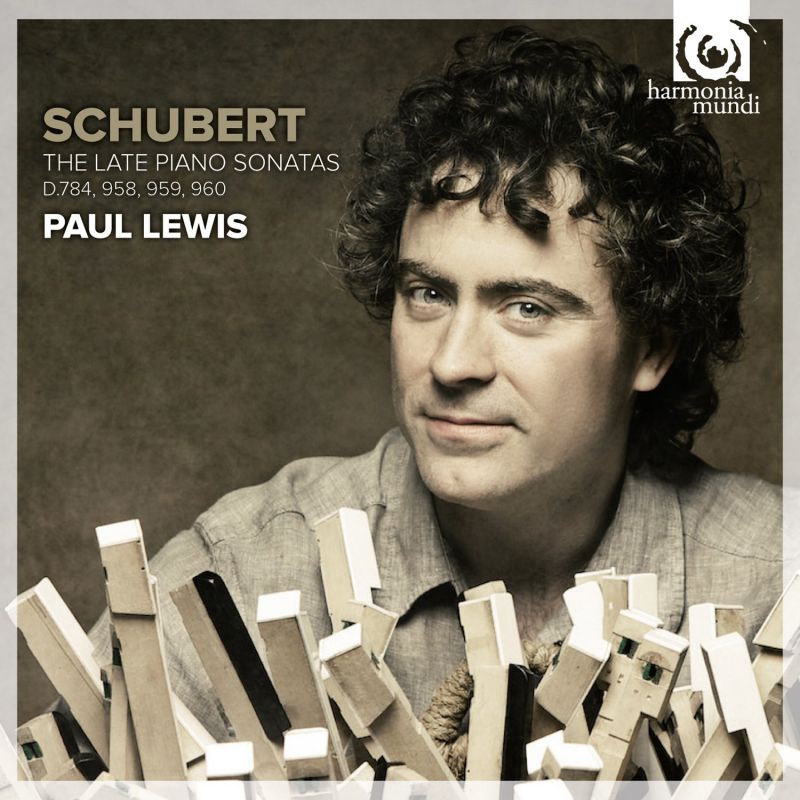SCHUBERT Late Piano Sonatas
View record and artist detailsRecord and Artist Details
Composer or Director: Paul Lewis, Franz Schubert
Genre:
Instrumental
Label: Harmonia Mundi
Magazine Review Date: 07/14
Media Format: CD or Download
Media Runtime: 129
Mastering:
DDD
Catalogue Number: HMC90 2165/66

Tracks:
| Composition | Artist Credit |
|---|---|
| Sonata for Piano No. 14 |
Franz Schubert, Composer
Franz Schubert, Composer Paul Lewis, Composer |
| Sonata for Piano No. 19 |
Franz Schubert, Composer
Franz Schubert, Composer Paul Lewis, Composer |
| Sonata for Piano No. 20 |
Franz Schubert, Composer
Franz Schubert, Composer Paul Lewis, Composer |
| Sonata for Piano No. 21 |
Franz Schubert, Composer
Franz Schubert, Composer Paul Lewis, Composer |
Author: Harriet Smith
That rhetorical power is put to tremendous use in D958: what previously sounded troubling is now cataclysmic. And he’s unashamed of pointing up the similarities with Beethoven. Even in a movement such as the finale of the same sonata, which hasn’t necessarily changed in conception, the details are telling, with smoother, less bouncy phrasing, to more malevolent effect. In the slow movement too, his reading now seems more informed by playing the song-cycles; what in the earlier performance was merely sad has much more colour, more layering, the emotion more searing. And that’s helped by the fact that he now has a better-regulated instrument and a much less boomy acoustic than before.
So good are these new readings that it seems a shame that he wasn’t able to re record D959 and D960 as well. It’s not that they’re not good: at their best they are very fine indeed. It’s simply that Lewis has matured into a much more outgoing, rhetorical artist. The first movement of D960 now seems a little fidgety alongside those of Andsnes, Uchida or Brendel – full of incident, yes, but not quite scaling the heights as he now does in concert. But it’s in the slow movements that I feel most has changed. Again, in concert, the outburst in D959 is these days devastating; on his recording it’s still a little reined in. The third movement of the same sonata is wonderfully played, though the piano is a little tinny in its uppermost reaches. So a slightly mixed affair. But the new recordings reaffirm that Lewis is one of the great Schubertians of our time.
Discover the world's largest classical music catalogue with Presto Music.

Gramophone Digital Club
- Digital Edition
- Digital Archive
- Reviews Database
- Full website access
From £8.75 / month
Subscribe
Gramophone Full Club
- Print Edition
- Digital Edition
- Digital Archive
- Reviews Database
- Full website access
From £11.00 / month
Subscribe
If you are a library, university or other organisation that would be interested in an institutional subscription to Gramophone please click here for further information.




